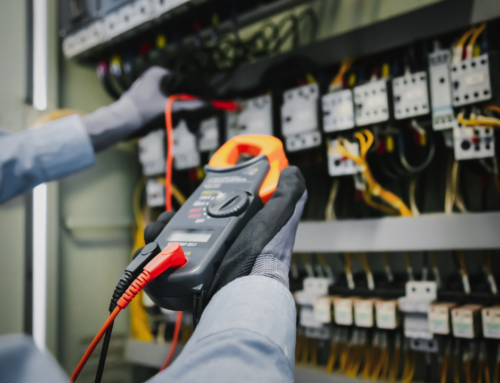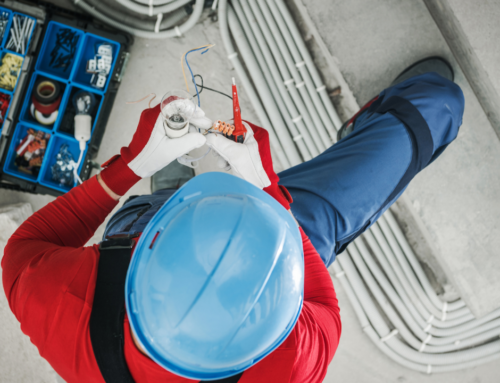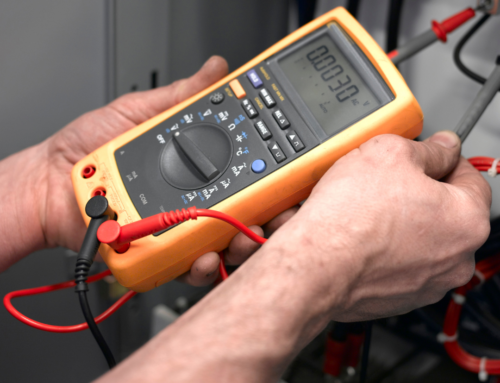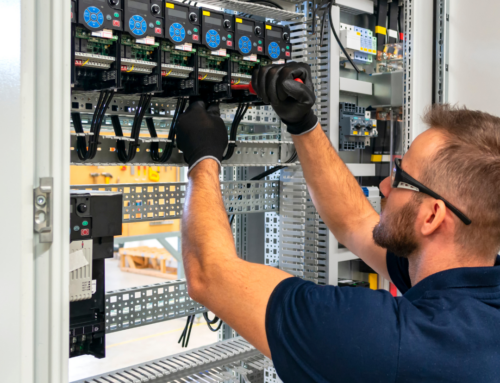When it comes to electrical work, the distinction between domestic and commercial electricians is significant, each specialising in their respective fields. This article aims to shed light on these differences, with a particular focus on the role of a commercial electrician.
Commercial Electricians
Commercial electricians specialise in the installation, maintenance, and repair of electrical systems in commercial properties. These properties include offices, retail outlets, schools, hospitals, and other business establishments. Unlike their domestic counterparts, commercial electricians work on a larger scale, dealing with complex systems that require a thorough understanding of commercial electrical codes and standards.
Key Responsibilities of a Commercial Electrician
The primary responsibilities of a commercial electrician include the design, installation, and maintenance of electrical systems in commercial buildings. They ensure that these systems are safe, efficient, and compliant with all regulatory requirements. Commercial electricians are adept at working with high voltage systems, commercial lighting installations, and large-scale electrical equipment. They also play a crucial role in energy management and conservation in commercial settings, advising businesses on how to reduce energy consumption and costs.
Skills and Qualifications
Becoming a commercial electrician requires a comprehensive set of skills and qualifications. Typically, they must complete an apprenticeship or vocational training, followed by obtaining a professional certification. Knowledge of commercial electrical codes, blueprints, and safety regulations is essential. Moreover, commercial electricians must possess strong analytical skills to diagnose and solve complex electrical issues. Their work often requires collaboration with other construction professionals, necessitating excellent communication and teamwork skills.
Differences Between Domestic and Commercial Electricians
While both domestic and commercial electricians deal with electrical systems, their work environments and the scale of their projects differ markedly. Domestic electricians focus on residential properties, dealing with lower voltage systems compared to the high voltage systems in commercial buildings. The complexity of commercial electrical systems requires commercial electricians to have specialised knowledge and experience in handling large-scale projects. Furthermore, commercial electrical work often involves more stringent safety standards and regulatory compliance, given the public nature of commercial spaces.
The Importance of Hiring a Commercial Electrician for Business Premises
For business owners, ensuring the safety and efficiency of their electrical systems is paramount. Hiring a commercial electrician guarantees that all electrical work is performed to the highest standards, compliant with legal and safety requirements. Commercial electricians can also provide valuable advice on energy efficiency, helping businesses to reduce their operational costs. Their expertise ensures that electrical systems are reliable and capable of supporting the needs of a commercial operation, minimising downtime and promoting a safe working environment.
In conclusion, while both domestic and commercial electricians play vital roles in maintaining electrical safety and functionality, the scope and complexity of their work differ significantly. Commercial electricians are indispensable in the commercial sector, offering specialised skills and knowledge to ensure that electrical systems in business premises are safe, efficient, and compliant with all regulations. For businesses looking to maintain or upgrade their electrical systems, get in touch with us for more information.







Leave A Comment